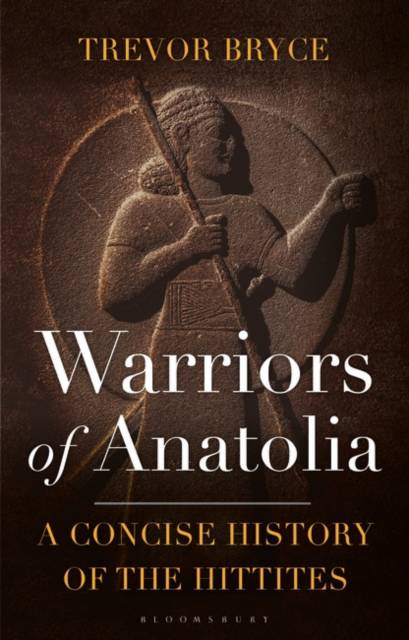
- Retrait gratuit dans votre magasin Club
- 7.000.000 titres dans notre catalogue
- Payer en toute sécurité
- Toujours un magasin près de chez vous
- Retrait gratuit dans votre magasin Club
- 7.000.0000 titres dans notre catalogue
- Payer en toute sécurité
- Toujours un magasin près de chez vous
Description
In this lively treatment of one of antiquity's most mysterious civilizations, whose history disappeared from the records over 3,000 years ago, Trevor Bryce sheds fresh light on Hittite warriors as well as on the Hittites' social, religious and political culture and offers new solutions to many unsolved questions. Revealing them to have been masters of chariot warfare, who almost inflicted a disastrous defeat on Rameses II at the Battle of Qadesh (1274 BCE), he shows the Hittites also to have been devout worshippers of a pantheon of storm-gods and many other gods, and masters of a new diplomatic system which bolstered their authority for centuries.
Drawing authoritatively both on texts and on ongoing archaeological discoveries, while at the same time offering imaginative reconstructions of the Hittite world, Bryce argues that while the development of a warrior culture was essential, not only for the Empire's expansion but for its very survival, this by itself was not enough. The range of skills demanded of the Hittite ruling class went way beyond mere military prowess, while there was much more to the Hittites themselves than just skill in warfare. This engaging volume reveals the Hittites in their full complexity, including the festivals they celebrated; the temples and palaces they built; their customs and superstitions; the crimes they committed; their social hierarchy, from king to slave; and the marriages and pre-nuptial agreements they contracted. It takes the reader on a journey which combines epic grandeur, spectacle and pageantry with an understanding of the intimacies and idiosyncrasies of Hittite daily life.Spécifications
Parties prenantes
- Auteur(s) :
- Editeur:
Contenu
- Nombre de pages :
- 304
- Langue:
- Anglais
Caractéristiques
- EAN:
- 9781350348851
- Date de parution :
- 17-11-22
- Format:
- Livre broché
- Format numérique:
- Trade paperback (VS)
- Dimensions :
- 137 mm x 213 mm
- Poids :
- 204 g

Les avis
Nous publions uniquement les avis qui respectent les conditions requises. Consultez nos conditions pour les avis.






